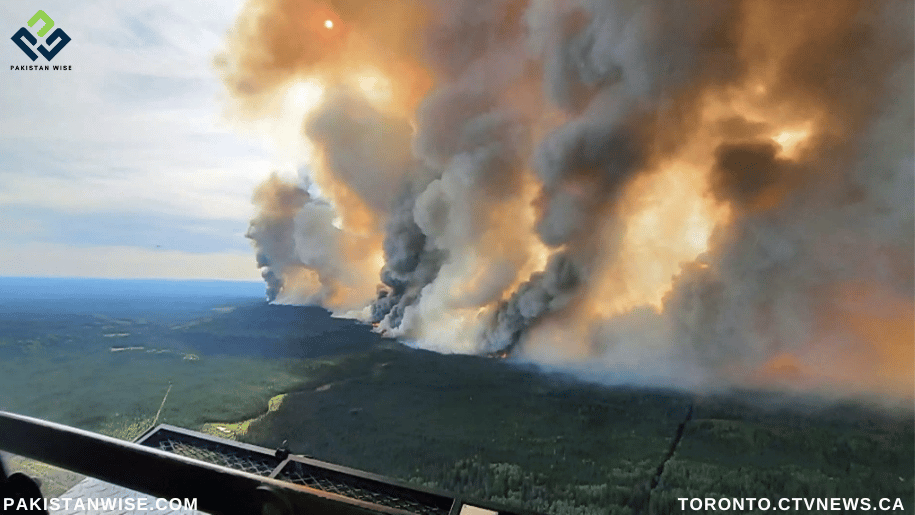The province of Quebec, Canada, is currently grappling with devastating wildfires, the repercussions of which are being felt far beyond its borders. The smoke from these fires has enveloped the eastern United States, affecting over 75 million individuals and prompting air quality alerts in major cities such as New York City and Philadelphia.
The severity of the situation is exemplified by the alarming air quality levels experienced in New York City, which reached their highest since the 1960s. The hazardous air quality has forced residents, particularly children, to stay indoors, while outdoor activities have been disrupted due to the health risks associated with the smoke.
Furthermore, the smoke has had a profound impact on air travel, resulting in grounded flights, flight delays, and cancellations. This disruption has caused inconvenience and frustration for countless travelers. The significant cost incurred due to these flight disruptions has become a growing concern for both airlines and passengers alike.
The wildfires in Quebec have also led to mandatory evacuations and the declaration of a state of emergency in certain affected areas. The safety and well-being of residents have been prioritized in response to the escalating situation.
Beyond the immediate impact on local communities, the smoke from the wildfires has become a point of concern for the Canadian and U.S. governments. Canadian Prime Minister Justin Trudeau and U.S. President Joe Biden have engaged in discussions to address the ongoing situation and explore potential collaborative efforts to mitigate the effects of the wildfires and improve air quality.
The severity and extent of the wildfires and the subsequent smoke pollution serve as a stark reminder of the environmental challenges faced by communities in both Canada and the United States. The need for coordinated action to prevent and manage such devastating wildfires has become increasingly evident.
As the wildfires continue to burn, authorities in Quebec and neighboring regions are working tirelessly to contain the fires and protect affected communities. Efforts are also being made to provide necessary support and resources to those impacted by the wildfires and the resulting decline in air quality.
The situation remains fluid, and it is crucial for residents in affected areas to stay informed about air quality updates, evacuation orders, and safety guidelines provided by local authorities. Additionally, individuals are encouraged to take necessary precautions, such as avoiding outdoor activities when air quality is poor and utilizing air purifiers and masks to reduce exposure to harmful pollutants.
The collective response to the wildfires in Quebec serves as a reminder of the importance of international cooperation in addressing environmental crises. As climate change continues to pose significant challenges, collaborative efforts between nations become paramount in building resilience and safeguarding the well-being of communities worldwide.

